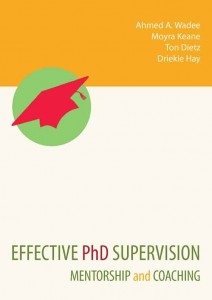Generational walks in Doorn and other educational projects
Life histories
Explanatory notes
Many pre-university pupils and students attending higher vocational education study generations. They write papers on this topic, often supplementing them nowadays with video reports. Social studies, history, economics and management, particularly, lend themselves to theses and graduation papers on generations.
Most students write papers on the life histories of members of generations. This practice is known as a ‘life history approach’, which is habitually used in historical sciences and sociology. Several chapters in Generations of Lucky Devils and Unlucky Dogs contain examples of this approach.
Because this book, Generations of Lucky Devils and Unlucky Dogs, will likely inspire many pupils to learn about generations during their studies some examples are provided here, the first being interviews with seniors of the Pre-War Generation and the Silent Generation. What was their childhood like and how did their formative years affect the rest of their lives? What impressions have they retained of the ‘Cultural Revolution’ of the late 1960s and early 1970s? How did they benefit from the economically favourable 1990s and how did they prepare themselves for their retirement years?
A second example is interviews with women concerning their experience with discrimination against women. Members of the Pre-War and Silent Generations suffered serious discrimination on the employment market. Take, for instance, women in public service who automatically lost their job upon getting married. One of the radical effects of the ‘Cultural Revolution’ is the strongly reduced discrimination against women, although it is still not entirely eradicated even in the year 2011.
The Return of the Underground Retail Cannabis Market?
Attitudes of Dutch coffeeshop owners and cannabis users to the proposed ‘cannabis ID’ and the consequences they expect.
ABSTRACT
The sale of cannabis to persons aged 18 or older is permitted in the Netherlands under certain conditions in commercial establishments called coffeeshops. The present Dutch government has proposed that access to coffeeshops be restricted to persons holding a cannabis ID, a mandatory membership card known colloquially as a ‘weed pass’ (wietpas). Recent interviews with 66 Amsterdam coffeeshop owners reveal that they expect mainly detrimental effects from the proposed measure. In particular, they predict customer resistance to compulsory registration, the discriminatory exclusion of tourists and other non-members, and a resurgence of cannabis street dealing. Two surveys of cannabis users (in a local sample of 1214 Amsterdam coffeeshop customers and a nationwide sample of 1049 last-month users) confirmed that many, but not all, users would oppose registration. The majority of respondents intended to look for other suppliers or to grow their own marijuana if the cannabis ID becomes law. Surprisingly, about one in ten said they would stop smoking cannabis.
Read more
The Constitution, Negotiation and Representation of Immigrant Student Identities in South African Schools
 ‘Think, instead of identity as a “production” which is never complete, always in process, and always constituted within, not outside representation’ (Hall, 2000).
‘Think, instead of identity as a “production” which is never complete, always in process, and always constituted within, not outside representation’ (Hall, 2000).
Abstract
The easing of legal and unauthorized entry to South Africa has made the country a new destination for Black immigrants. As this population continues to grow, its children have begun to experience South African schools in an array of uniquely challenging ways. For these immigrant youth, forging a sense of identity may be their single greatest challenge. Accordingly, this study asks how do immigrant students construct, negotiate, and represent their identities within the South African schooling context. Findings were multifold in nature.
First, although immigrant students’ ease of assimilation into the chosen reference group was to some degree sanctioned by their phenotypic racial features, their attempt at ‘psychosocial passing’ was politically motivated. Second, immigrant students did not readily classify themselves according to skin pigmentocracy. Third, the majority of immigrant students heightened their ethnic self-awareness in forming their identity, but also assumed hyphenated identities. Fourth, immigrant students were not seen as having an identity, but rather as being ‘plugged into a category with associated characteristics or features’. Fifth, immigrant students forged a ‘continental identity’. And sixth, the selfagency of immigrant students was twofold in nature; not only did they want to improve their own condition, but there seemed to be an inherent drive to improve the human condition of others.
Household Governance and Time Allocation – Four Studies on the Combination of Work and Care
 One isn’t enough, but both is too much; these words by a female blue-collar worker express the current dilemma of many employees in combining work and care. In all modern societies couples face an increasing need to arrange the combination of work and care in a new way.
One isn’t enough, but both is too much; these words by a female blue-collar worker express the current dilemma of many employees in combining work and care. In all modern societies couples face an increasing need to arrange the combination of work and care in a new way.
The traditional household model with a male breadwinner who is responsible for paid work, career and income, and his wife, who takes care of all household obligations, is losing its relevance, and fits the values and preferences of the majority of couples less and less well. Over the past decades women have increasingly entered the labour market and the number of two-earner couples has been growing. Gender differences in educational achievements and earning capacities have decreased. The values and preferences of couples put great weight on an egalitarian relationship and equal engagement of both partners in work and care.
Besides the traditional male breadwinner model, a wide variety of different earning models and household constellations has emerged. In some countries, like the Netherlands or Germany, the majority of couples are two-earner couples.
Effective PhD Supervision – Mentorship and Coaching
 The complete book online
The complete book online
Chapter One: Chapter One: Introduction
Chapter Two: Guidelines for Supervisors
Chapter Three: Guidelines for Mentors
Chapter Four: Coaching: Charting your own Path
Chapter Five: The Relationship between PhD Candidate and Supervisor
Chapter Six: A Holistic Approach to PhD Support
Chapter Seven: Bibliography and Recommended Reading
Appendices and Acknowledgments
Effective PhD Supervision – Chapter One: Introduction
Foreword by Ms. M. Metcalfe
I am very pleased to present this second edition of the South Africa-Netherlands Research Programme on Alternatives in Development (SANPAD) Supervision Workbook.
The Workbook is yet another contribution by SANPAD towards improving the quality of supervision of doctoral students in South Africa. The Department of Higher Education and Training is particularly encouraged by these efforts, as they continue to enhance the overall quality of our PhD graduates and future academics. PhD qualifications are generally considered to be the first real entry points into the rigorous world of research. As a result, the focus on improving the academic experience of students at this level through improved supervision and mentoring will go a long way towards increasing the overall numbers of PhD graduates at our institutions.
It has become clear that although the number of students enrolling for PhD studies in South Africa has increased over the years, a large proportion of these students do not complete their studies. The reasons for this are many, among them the relationships between supervisors and their students and the overall quality of supervision. The difficulties often stem from the fact that not all supervisors have been properly trained for supervision duties. The mistake that is often made in higher education institutions across the globe is to assume that every academic, by virtue of his or her experience in teaching or research, knows what is required to supervise postgraduate students. Studies show that this is not usually the case and, in fact, academics need proper training and support if they are to effectively carry out their supervision responsibilities. This Workbook will provide a useful guide for both supervisors and PhD candidates on how to structure their working relationships into better interaction and supervision experiences.




